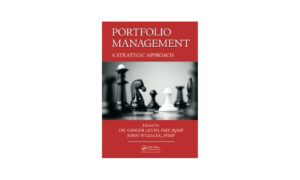Portfolio management is at the heart of the financial world, enabling individuals and institutions to optimize their investments for maximum returns while managing risk. As we move into 2025, the landscape of portfolio management is evolving rapidly, shaped by technological advancements, changing investor preferences, and global economic trends.
This article explores the key trends reshaping portfolio management and how these innovations are poised to define the future of investing.
Top 7 Trends of Portfolio Management
Companies like AlpCaps are at the forefront of these innovations, redefining how portfolio management evolves. Let’s explore these top 7 trends in detail:
1. The Rise of Artificial Intelligence and Machine Learning
Artificial Intelligence (AI) and Machine Learning (ML) are transforming portfolio management, offering unprecedented levels of efficiency and accuracy. These technologies allow portfolio managers to analyze massive datasets, identify patterns, and make predictions with minimal human intervention.
Key Applications:
- Predictive Analytics: AI-driven models can forecast market trends and asset performance with greater accuracy.
- Automated Rebalancing: Machine learning algorithms monitor portfolios and automatically adjust allocations based on market conditions.
- Sentiment Analysis: AI tools analyze news, social media, and financial reports to gauge market sentiment and inform investment decisions.
Why It Matters: By leveraging AI and ML, portfolio managers can make more informed decisions, reduce biases, and improve overall performance, giving both institutional and retail investors a competitive edge.
2. Personalized Portfolio Management with Fintech
The demand for personalized investment solutions is on the rise as investors seek portfolios that align with their unique goals, risk tolerance, and values. Fintech platforms are at the forefront of this trend, offering tailored solutions that cater to individual preferences.
Features Driving Personalization:
- Goal-Based Investing: Platforms allow investors to build portfolios focused on specific goals, such as retirement, education, or wealth accumulation.
- Risk Profiling: Advanced tools assess an investor’s risk appetite and recommend asset allocations accordingly.
- Thematic Portfolios: Investors can focus on themes like green energy, technology, or healthcare, reflecting their values and interests.
Why It Matters: Personalization enhances the investor experience, enabling clients to feel more connected to their financial goals and investments.
3. The Role of ESG in Portfolio Management
Environmental, Social, and Governance (ESG) investing is no longer a niche practice—it’s becoming a mainstream priority for investors and portfolio managers alike. ESG-focused portfolios not only cater to socially conscious investors but also offer long-term resilience in a rapidly changing world.
Key Developments:
- ESG Integration: Portfolio managers are embedding ESG factors into traditional investment analysis.
- Regulatory Support: Governments and financial institutions are introducing policies to encourage ESG transparency and reporting.
- Performance Tracking: Tools are emerging to quantify the impact of ESG investments on financial returns and societal outcomes.
Why It Matters: ESG investing aligns portfolios with global sustainability goals while appealing to the growing base of environmentally and socially conscious investors.
4. Automation and Robo-Advisors
Automation is simplifying portfolio management, making it accessible to a broader audience. Robo-advisors are leading this charge, offering low-cost, automated solutions that rival traditional advisory services.
Robo-Advisor Capabilities:
- Portfolio Construction: Automated tools build portfolios based on user preferences and risk profiles.
- Fee Transparency: Robo-advisors provide cost-effective management with clear, predictable fee structures.
- Accessibility: These platforms cater to novice investors, offering a user-friendly entry point into portfolio management.
Why It Matters: Robo-advisors democratize portfolio management, empowering individuals with smaller capital to access professional-grade investment services.
5. The Integration of Blockchain Technology
Blockchain is poised to revolutionize the financial industry, including portfolio management. Its decentralized, transparent, and secure nature offers significant advantages in asset tracking and transaction efficiency.
Blockchain’s Impact:
- Tokenized Assets: Investors can access fractional ownership of high-value assets like real estate or fine art.
- Smart Contracts: Automated contracts streamline portfolio operations, from dividend payments to asset transfers.
- Enhanced Security: Blockchain ensures data integrity and reduces fraud risks in portfolio transactions.
Why It Matters: By integrating blockchain, portfolio managers can enhance transparency, efficiency, and accessibility, opening up new opportunities for diversification.
6. Advanced Risk Management Tools
Managing risk is a cornerstone of portfolio management, and technological advancements are enhancing this critical function. Predictive analytics and real-time monitoring tools are helping portfolio managers stay ahead of market volatility.
Key Innovations:
- Scenario Analysis: Advanced tools simulate various market conditions to test portfolio resilience.
- Real-Time Risk Metrics: Portfolio managers can monitor metrics like Value at Risk (VaR) continuously.
- Stress Testing: Automated systems evaluate portfolio performance under extreme conditions, providing insights for risk mitigation.
Why It Matters: Enhanced risk management tools empower portfolio managers to safeguard investments while seizing growth opportunities.
7. The Expansion of Global Investment Opportunities
Globalization and digital transformation are breaking down barriers, giving investors access to international markets like never before. Portfolio managers are increasingly diversifying across geographies to capture growth in emerging economies.
Trends in Globalization:
- Access to Emerging Markets: Platforms offer seamless access to high-growth regions.
- Currency Risk Hedging: Tools help manage risks associated with foreign exchange fluctuations.
- Cultural Awareness: Portfolio managers are adapting strategies to align with regional economic conditions and trends.
Why It Matters: Expanding into global markets enhances portfolio diversification and unlocks new growth potential.
Conclusion
The future of portfolio management is being shaped by innovation, personalization, and a heightened focus on sustainability. As trends like AI, fintech, ESG investing, and blockchain reshape the industry, investors and portfolio managers must adapt to stay ahead.
For firms like alpcaps.com, these trends represent an opportunity to redefine portfolio management by combining cutting-edge technology with client-centric solutions. By embracing these advancements, the financial industry can unlock new possibilities, delivering superior outcomes for investors in 2025 and beyond.



































